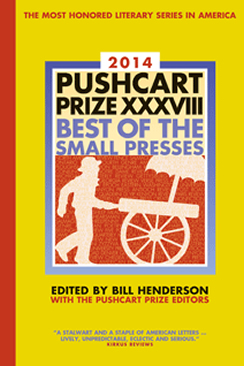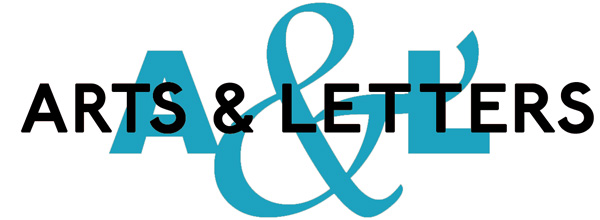Tag Archives: The Gettysburg Review
Pushcart Prize XXXVIII: Best of the Small Presses
 Pushcart Prize XXXVIII
Pushcart Prize XXXVIII Writers are encouraged to read the literary journals and magazines, both to keep abreast of the contemporary literary scene and to find venues for submitting their work. There are so many publications that it’s hard to know where to begin. The Pushcart collection offers a starting point, not a comprehensive list, but an impressive sample of work from established magazines.
The thick tome looks a bit intimidating at first glance, but the 534 pages of fiction, essays and poetry contained within are well worth exploring, as are the lists of past winners, special mentions, and contributing presses. It’s sort of a crash course on reputable journals and the contemporary scene, with work from both familiar names and fresh voices. While most of the prose is fairly traditional in terms of structure, the characters, subjects and plots offer plenty of surprises.
Tina Louise Blevins’s story “God of Ducks,” nominated by The Gettysburg Review tells the story of an overweight, middle-aged cook who forms a friendship with a young “punk” he meets at his restaurant job. “Teen Culture,” nominated by American Short Fiction, is a first person narrative of a single mother who finds companionship with her fourteen-year-old daughter’s friends.
If there is a common thread through the fiction in this widely varied collection it is deep empathy for difficult characters. The nonfiction pieces stare down contentious issues ranging from modern technology to suicide. Charles Baxter’s “What Happens in Hell,” nominated by Ploughshares, is about both a near-death experience and the author’s own unwillingness to forgive the man who nearly killed him. Eric Fair’s “Consequence” (also from Ploughshares) tells of the outrage resulting from an article he published about his experience working as private contractor during the Gulf War, exploring both the ugliness of his actions and the cruel response they elicit with unflinching honesty.
There are even a few moments of humor, like Andrew Zolot’s “The Piece Need Not Be Built,” which originally appeared in American Circus: a cynical, satirical argument for why the coat check at the Museum of Modern Art is its best exhibit.
The poetry is both beautiful and accessible. Like Natalie Diaz’s “Cranes, Mafiosos and a Polaroid Camera,” from Spillway, which transforms a paranoid late night phone call into a meditation on nature, death, and the machine-like workings of the human body. “Just tell me what to do. You know what to do, he pleaded./ I should have known how to help my brother by now . . . Instead I told him about the sandhill cranes, the way they dance–/moving into and giving way to one another, bowing down . . .”







